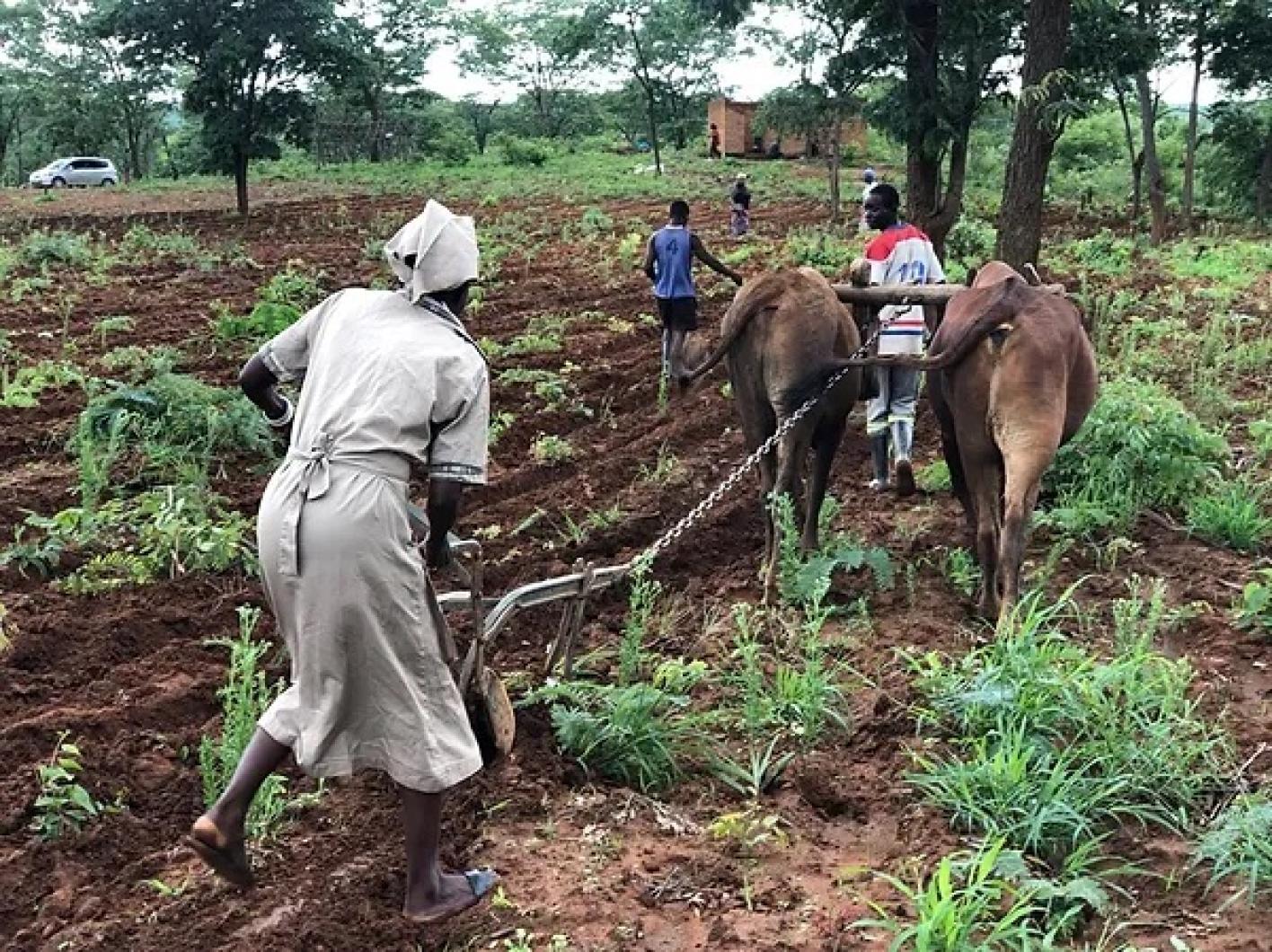When I arrived in Livingstone, Zambia last March, I did not realize it would not be like other visits.
Usually, I come to Livingstone in January, when the mangoes are ripe, or in February, when the huge guava tree in the backyard of the Mama Bakhita Cheshire Home is dropping fruit daily and the perfume says “No winter here.”
This year I arrived in March on the day before the International Women’s Day March, an important event for women in Zambia where men dominate the culture and women are often sidelined.
I also arrived in a country whose precarious economy was at a standstill due to a disastrous five-month drought that had destroyed more than half of the corn crop that is Zambia’s main food source for the 70 per cent of the population living in poverty. And the price of food was increasing daily.
Despite the drought, this year’s International Women’s Day celebration was imbued with a subtle but electric energy. President Hakainde Hichilema, the first Zambian president ever to champion the poor and actively fight corruption, would be there to speak about equal rights for women in government, business and finance.
We were 6000 women strong, representing more than 100 groups of every kind, and we welcomed this true Zambian political hero. The feeling of hope and female power was palpable.
Drums with many different beats filled the air. Brilliant colors and bold patterns flashed in the throng. The women from Mama Bakhita and Zambezi Farm were outfitted in bright pink and everyone passed the time waiting for the procession to begin by singing and dancing, joking and laughing and celebrating the heady awareness that women are at last gaining ground in this entrenched patriarchy, thanks to Zambia’s eloquent new president.
This year, as I entered the courtyard of the Mama Bakhita I was welcomed with songs and dancing and ululation by the group of women I have known since 2007, when they called themselves the God Given Gift Group. All have kids that attended or still attend school at the Mama Bakhita Cheshire Home, where the Sisters of St. Francis serve children with disabilities. They made a sparse living vending at local open-air markets, including used clothes, dried fish, charcoal or pyramids of home-grown tomatoes.
These 12 women were bound together by their children with severe disabilities and the hardships they endure beyond the normal difficulties of poverty. What handmade object could they make that I could sell for substantial price to support the tight knit group? I thought that a doll made of high-quality materials could work. So, in 2010, we set about designing the beautiful Zambezi Dolls which I continue to sell today on my website.
That income, along with sales of African crafts, paid a monthly salary and provided health insurance until 2020, when Covid hit businesses shut down and families went into lockdown for two months. This was when Sydney Mwamba, the general manager in Zambia of the African Artists Community Development Project, realized that our women had indigenous land rights in Livingstone and what did they think about starting a communal farm? The response was an emphatical yes, and a joyful celebration erupted. Thus was born the Zambezi Farm.
Slowly the project took shape and, one by one, crops were planted. Today, the farm has a well, irrigation, a simple two-room house for shelter and storage, 300 chickens and a small herd of goats. A sustainable future is becoming a reality.
President Hichilema’s words brought hope. His leadership has inspired other nations to help with grain and well drilling groups. His administration plans to study alternate sources for water, increasingly a challenge due to man-made climate change throughout southern Africa. The Zambians did not create this dry future but they know they must plan for ways to live in it, nonetheless.
This visit was full of unexpected revelations. The public schools are truly free, corrupt government officials are being prosecuted and a woman is vice president. In Livingstone, the Zambezi Farm is selling vegetables and chickens for income and providing food for the table. American sponsors through the AACDP are sending a handful of young people in our community to school and Sister Magdalena, the new director of the MamaBakhita, has embraced the idea that art is integral to education and has partnered with me to bring this as well as physical therapy into the lives of the children here on a weekly basis. All this with an ongoing drought hobbling the economy.
I am content that the AACDP is living up to our ambitious name: the African Artists Community Development Project and grateful that so many people have supported our efforts through the years. Zicomo. Thank you.
Marsha Winsryg lives in West Tisbury. She is the director of the African Artists Community Development Project.




Comments (3)
Comments
Comment policy »